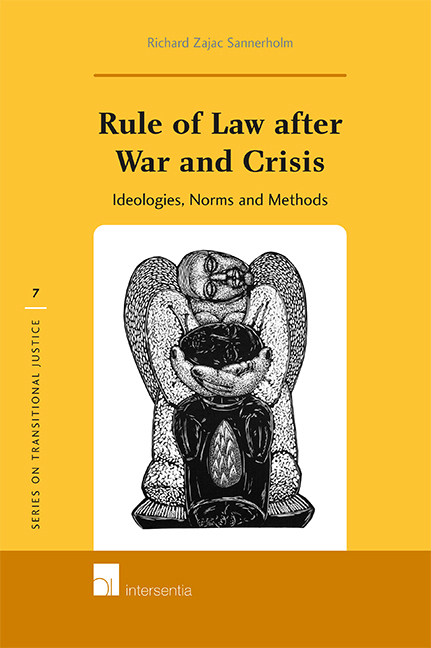Summary
This work concerns itself with rule of law assistance in the aftermath of war and crisis. Over the past decade, rule of law has emerged as an essential objective in state-building missions. This has led to a host of programmes and projects on law reform, constitutional development, judicial training, and institutional establishment.
The overriding purpose of this book is to describe and analyse the effects of international assistance, norms and standards on post-crisis legal, judicial and administrative systems. Three central areas are examined – how the rule of law is conceptualised by international actors; what the principal methods are for putting the concept into effect; and effectiveness and international accountability in rule of law assistance.
The first part of this work begins with a description of how different ‘types’ of conflict affect legal and administrative systems, and what forms of intervention have been employed. It then moves on to analyse how the rule of law is conceptualised by specific international actors and the ‘ideologies’, views and interests underpinning the various definitions. This examination provides common characteristics and a framework upon which successive chapters are constructed. The relevance of rule of law conceptualisations is also discussed, particularly their prime relevance to criminal, constitutional, or administrative law.
The second part of the book concentrates on what the principal methods are that international actors apply within rule of law assistance. Following three broad themes – law reform and constitutional reform, institution-building, and access-creation – the typical approaches of international agencies are discussed. In other words, what types of approach work, the main difficulties involved, and how methods in rule of law assistance can be improved. The emerging lack of accountability and effectiveness is then addressed, particularly ways of enhancing the mutual accountability of international reformers and national authorities.
Part three is forward-looking and makes suggestions for improving rule of law reform after war and crisis.
- Type
- Chapter
- Information
- Rule of Law after War and CrisisIdeologies, Norms and Methods, pp. ix - xPublisher: IntersentiaPrint publication year: 2012

